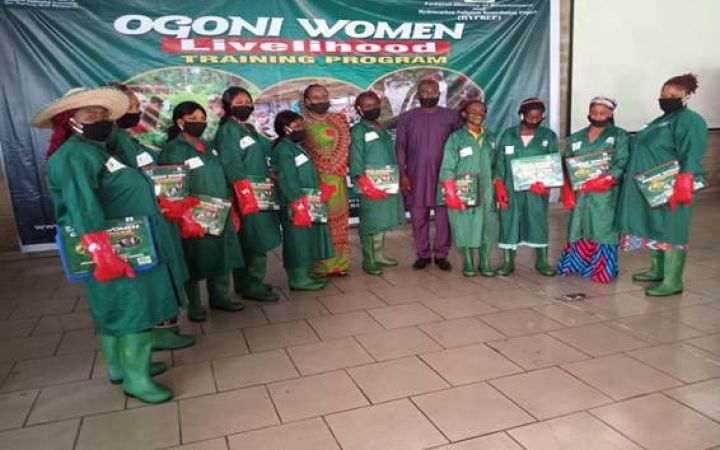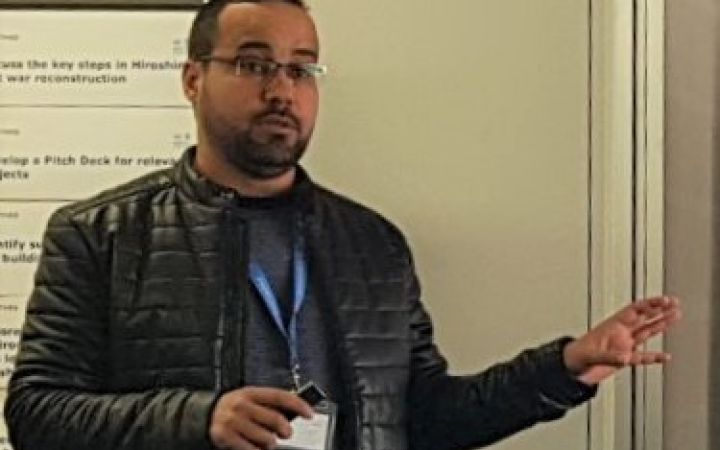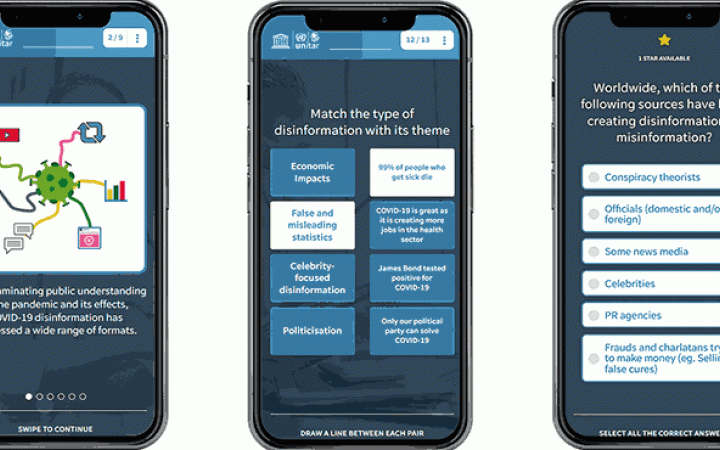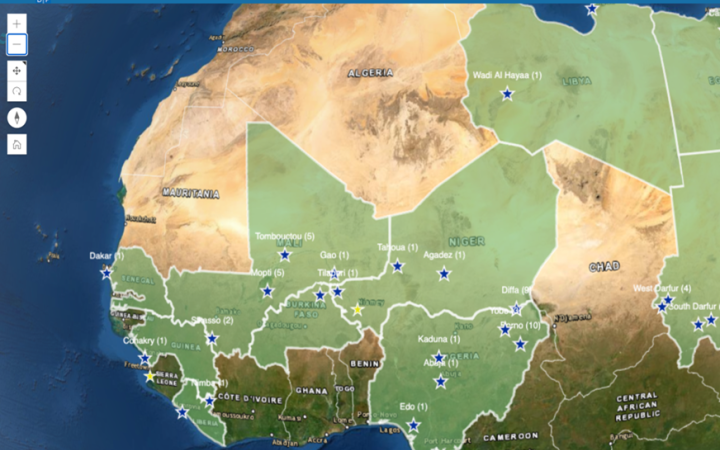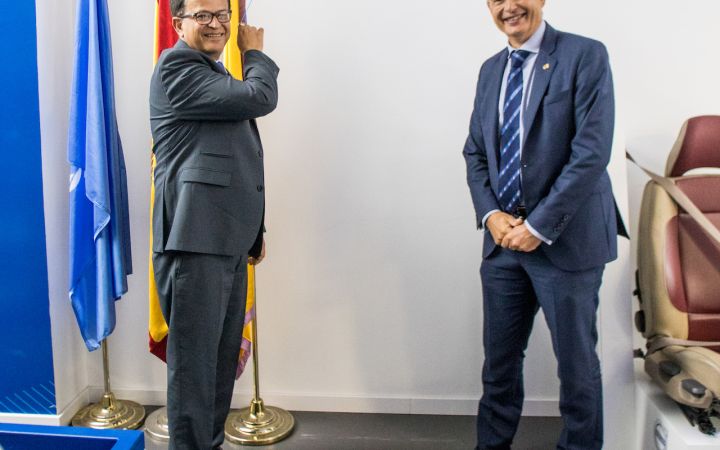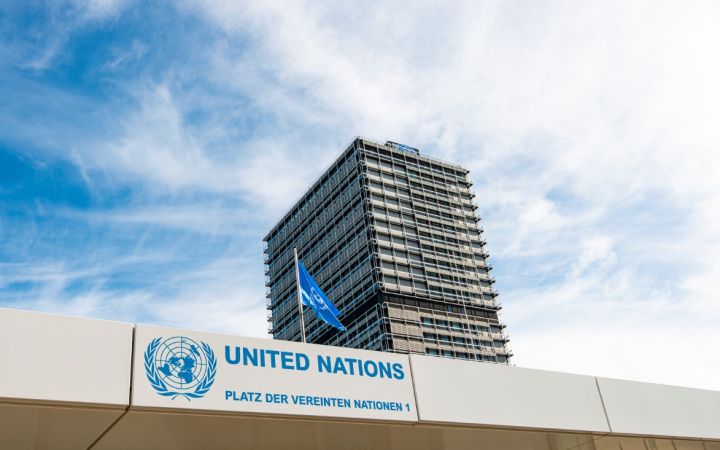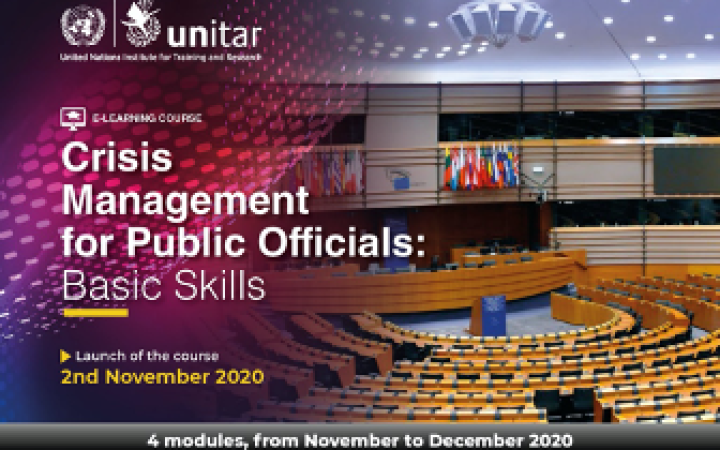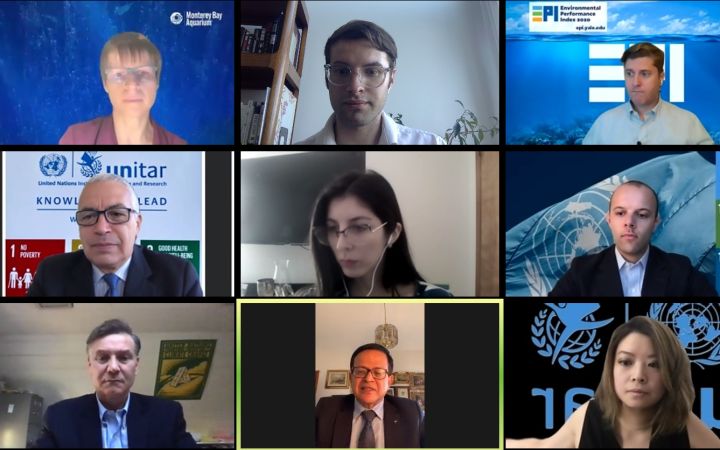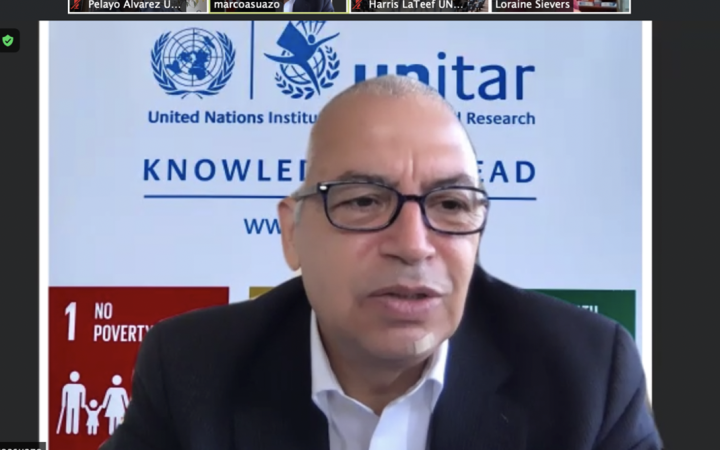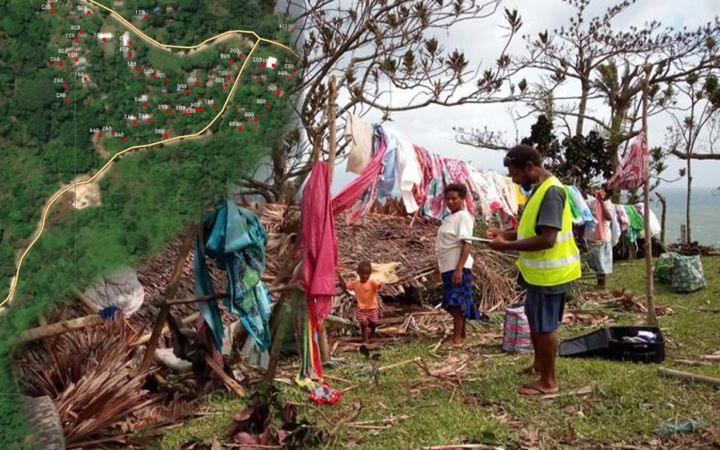Displaying 1381 - 1390 of 3509
5 November 2020, Port Harcourt, Nigeria - A total of 400 women selected from the four Ogoni Local Government Areas comprising of Eleme, Tai, Khana and Gokana in Rivers State, Nigeria have benefited from an Agribusiness Skill Training and Empowerment Programme which held from 19th July to 26th September 2020, organized by UNITAR in collaboration with the Federal Government of Nigeria.
Hussein Naeem Hasan Naser: Hussein talks about how his participation in UNITAR's 2019 Iraq training programme helped him start his social business and how he was able to enhance his skills and mindset.
3 November 2020 - COVID-19 has led to a parallel pandemic of disinformation that directly impacts lives and livelihoods around the world. Falsehoods and misinformation have proven deadly and sowed confusion about life-saving personal and policy choices. We are in the midst of a disinfodemic.
30 October 2020, Geneva, Switzerland, New York, United States - In late 2016, the United Nations Development Programme (UNDP) and UNITAR-UNOSAT entered into a three-year collaboration period with the purpose of developing a web-mapping interface for the monitoring and evaluation of 15 UNDP projects focused on infrastructure rehabilitation in Sub-Saharan Africa. The interface was customized to feature individual story maps depicting the project sites, which would convey the different projects’ objectives, activities, and their impact in an intuitive manner using the ArcGIS Online system. From this, the ‘Geolocalized Maps and Satellite Imagery Analysis’ interface emerged to include engaging story maps for 156 locations, in 7 countries: Guinea, Liberia, Libya, Mali, Niger, Nigeria, and Sudan.
26 October 2020, Geneva, Switzerland – UNITAR and the Royal Automobile Club of Spain (RACE) renewed its three-year cooperation agreement to continue to build capacity through CIFAL Madrid - the International Training Centre for Authorities and Leaders in Madrid.
23 October 2020, Bonn, Germany - The United Nations Institute for Training and Research (UNITAR) is now the 24th and newest member of the UN family in Bonn. UNITAR, headquartered in Geneva, Switzerland, opens its third out-posted office in the UN City in Germany, following the offices in the United States (New York) and Japan (Hiroshima). The Institute has several project offices and affiliated training centres around the world.
Governments around the world have been at the forefront in the fight against global crises, including the ongoing COVID-19 pandemic. However, the disruptive nature of the COVID-19 crisis has exposed a deeper level of vulnerability in our communities, by creating unprecedented socio-economic and cultural implications. During the crisis, public servants have been faced with the unparalleled urgency to formulate new ways of thinking, adapt to new realities and prepare for the unknown future.
Due to this urgent need to support Government officials, UNITAR’s Division for People and Social Inclusion is launching its new course on Monday the 2nd of November 2020, entitled: ‘Crisis Management for Public Officials: The Skills Necessary to Effectively Manage a Crisis and Continually Deliver to the People you Serve’ (also known as: ‘Crisis Management for Public Officials: Basic Skills’).
Due to this urgent need to support Government officials, UNITAR’s Division for People and Social Inclusion is launching its new course on Monday the 2nd of November 2020, entitled: ‘Crisis Management for Public Officials: The Skills Necessary to Effectively Manage a Crisis and Continually Deliver to the People you Serve’ (also known as: ‘Crisis Management for Public Officials: Basic Skills’).
19 October 2020, New York, USA. – In parallel with the environmental objectives set forth by the United Nations as it celebrates its historic 75th Anniversary, the United Nations Institute for Training and Research (UNITAR) New York Office and the Yale Center for Environmental Law & Policy hosted a training workshop for UN delegates and interested participants, entitled “Achieving Sustainability Through Metrics” on 15 October 2020. As with the other workshops, this session took place in an online format attracting over 60 participants from all over the world.
19 October 2020, New York, USA (Virtual) – The United Nations Institute for Training and Research (UNITAR) New York office launched a series of training on Monday, 19 October catered for the members of the Ministry of foreign Affairs of Ireland. The purpose of the training is to prepare the delegates for the work and the responsibilities of the Security Council. Ireland was elected as a member of the Council in June 2020 by the members of the General Assembly along with India, Norway, Mexico and Kenya. Ireland will serve a two-year term in the Security Council, starting 1 January 2021.
16 October 2020, Geneva, Switzerland – UNOSAT and UNDP, longstanding partners, are cooperating on a new satellite imagery analysis application, through the production of maps used in the validation of the civil and electoral registries in Vanuatu’s 83 islands.


